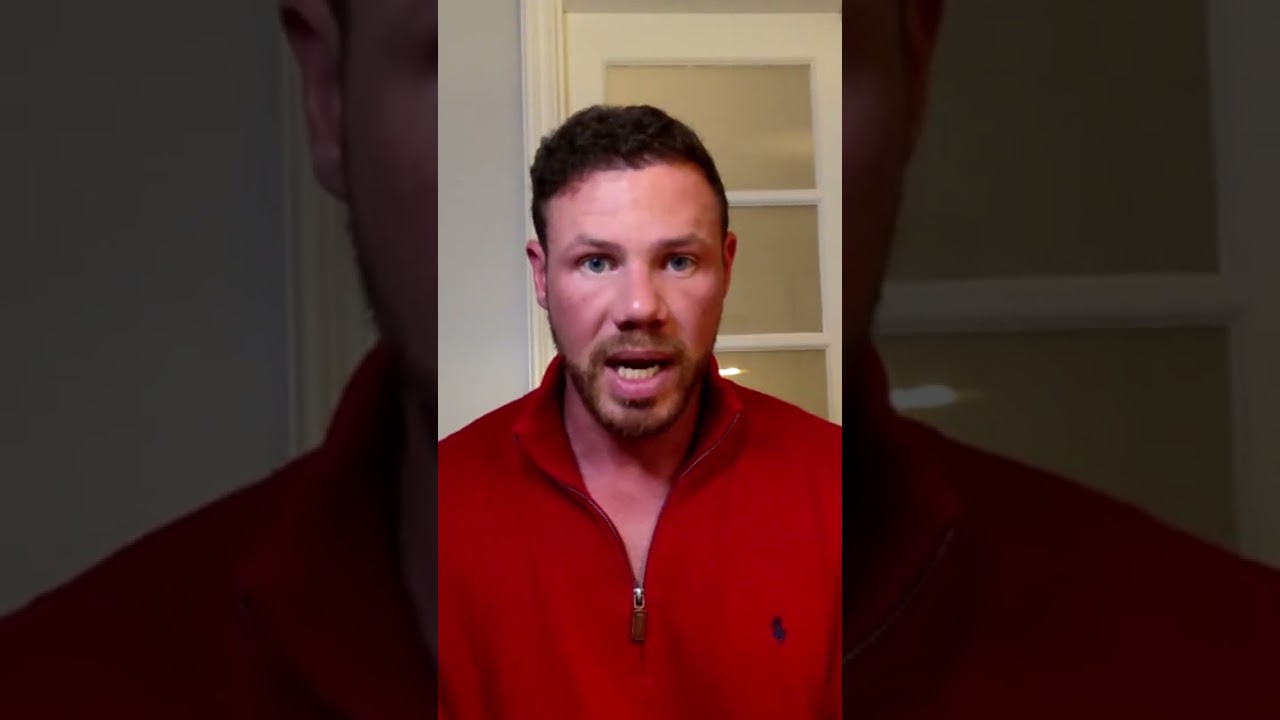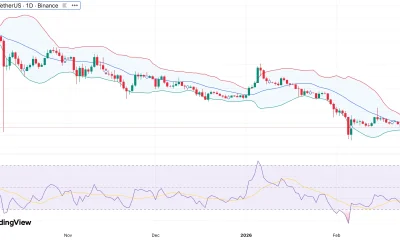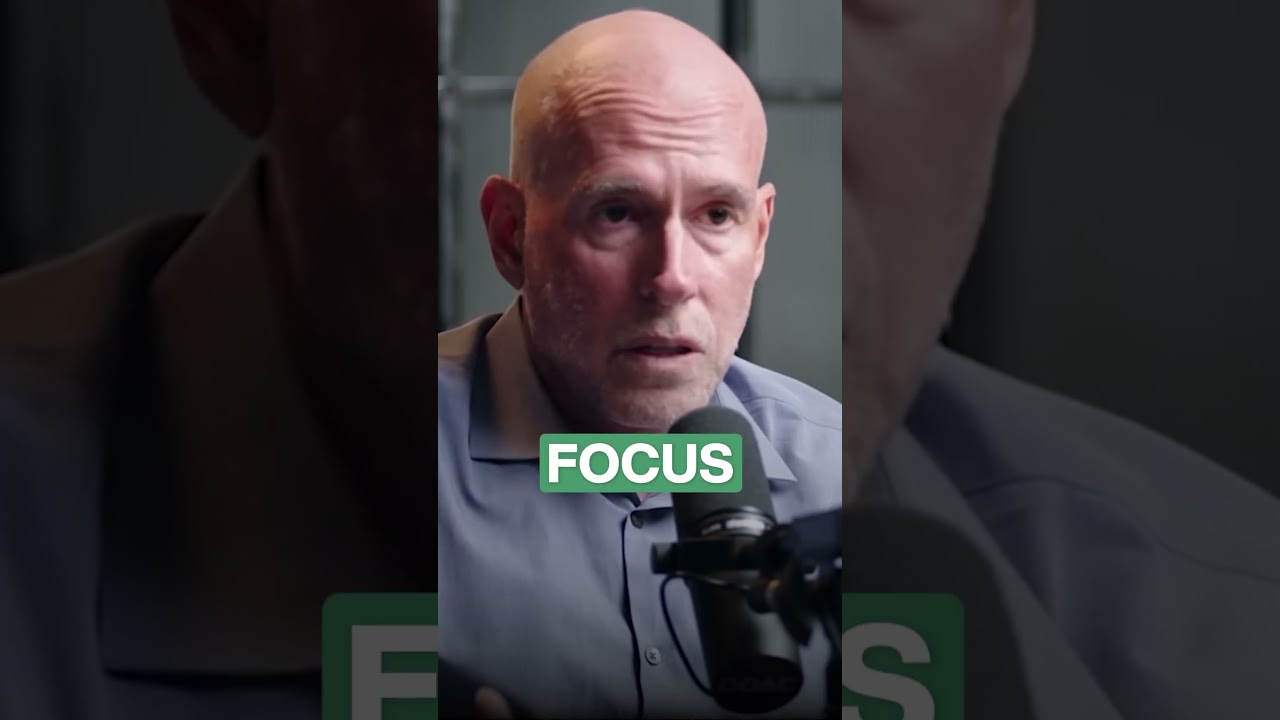Video
Most Powerful Prayers for Financial Breakthrough with Psalms

Psalms and Prayers for Financial Breakthrough – Psalm 1, Psalm 34, Psalm 37, Psalm 23, Psalm 84, Psalm 65, Psalm145
🟥𝙎𝙪𝙗𝙨𝙘𝙧𝙞𝙗𝙚 𝙛𝙤𝙧 𝘿𝙖𝙞𝙡𝙮 𝘽𝙡𝙚𝙨𝙨𝙞𝙣𝙜𝙨!⬇️
https://www.youtube.com/channel/UCn91q96cdv_SHyWgC58yXnA
In this video, we explore powerful prayers and readings from the King James Version of the Bible, focusing on Psalms that have been historically sought for financial breakthroughs. Join us as we delve into Psalm 1, Psalm 34, Psalm 37, Psalm 23, Psalm 84, Psalm 65, and Psalm 145. Each of these sacred texts offers unique insights and divine guidance on prosperity, overcoming financial hurdles, and attracting abundance.
We begin with Psalm 1 to understand the blessed path of the righteous, followed by Psalm 34, where we seek the Lord’s deliverance from all fears, including financial insecurities. Psalm 37 teaches us about trust and patience in God’s timing, while Psalm 23 reassures us of His constant support and provision.
Psalm 84 inspires us with its depiction of divine blessings and favor, and Psalm 65 praises God’s bounty and our expected abundance. Finally, we conclude with Psalm 145, a celebration of God’s generous mercy and His open hand that fulfills our desires.
Whether you are facing financial difficulties or seeking spiritual enrichment for greater abundance, these scriptural prayers will uplift and guide you. Don’t forget to like, subscribe, and share this video with others who might find strength and hope in these words. Comment below how these Psalms have touched your life or any other verses you turn to in times of need.
Welcome to “Psalms and Blessings,” a channel where you can explore the deep wisdom and comforting prayers from the Book of Psalms. We offer soothing audio versions of the Bible in both the King James Version (KJV) and the New International Version (NIV). Listen to beloved Psalms like Psalm 91 for protection and Psalm 23 for tranquility, perfect for helping you relax at bedtime or uplift your spirit through prayer. Our channel is a sanctuary for those seeking peace and spiritual growth through the power of Psalms. Subscribe to “Psalms and Blessings” today to bring these divine blessings into your daily life.
————-💥𝐏𝐎𝐏𝐔𝐋𝐀𝐑 𝐏𝐋𝐀𝐘𝐋𝐈𝐒𝐓𝐒💥————-
👉 𝟏. 𝐏𝐬𝐚𝐥𝐦𝐬 𝐰𝐢𝐭𝐡 𝐌𝐨𝐬𝐭 𝐏𝐨𝐰𝐞𝐫𝐟𝐮𝐥 𝐏𝐫𝐚𝐲𝐞𝐫
https://www.youtube.com/playlist?list=PLq0QvrNVtMem_AePuNrOtYSI-XmkVc6VZ
👉 𝟐. 𝐍𝐈𝐕 𝐀𝐮𝐝𝐢𝐨 𝐏𝐬𝐚𝐥𝐦𝐬 𝐅𝐫𝐨𝐦 𝐁𝐢𝐛𝐥𝐞
👉 𝟑. 𝐊𝐉𝐕 𝐀𝐮𝐝𝐢𝐨 𝐏𝐬𝐚𝐥𝐦𝐬 𝐅𝐫𝐨𝐦 𝐁𝐢𝐛𝐥𝐞
👉 𝟒. 𝐏𝐬𝐚𝐥𝐦𝐬 𝐰𝐢𝐭𝐡 𝐢𝐭𝐬 𝐓𝐞𝐚𝐜𝐡𝐢𝐧𝐠𝐬 𝐚𝐧𝐝 𝐏𝐨𝐰𝐞𝐫𝐟𝐮𝐥 𝐏𝐫𝐚𝐲𝐞𝐫𝐬
👉 𝟓. 𝐏𝐬𝐚𝐥𝐦𝐬 𝟗𝟏 𝐚𝐧𝐝 𝐏𝐬𝐚𝐥𝐦 𝟐𝟑 𝐰𝐢𝐭𝐡 𝐏𝐨𝐰𝐞𝐫𝐟𝐮𝐥 𝐏𝐫𝐚𝐲𝐞𝐫𝐬
👉 𝟔. 𝐏𝐬𝐚𝐥𝐦 𝟗𝟏 𝐰𝐢𝐭𝐡 𝐏𝐨𝐰𝐞𝐫𝐟𝐮𝐥 𝐏𝐫𝐚𝐲𝐞𝐫𝐬
https://www.youtube.com/playlist?list=PLq0QvrNVtMem-FOhyfR4QO650qzhpOPSJ
👉 𝟕. 𝐏𝐬𝐚𝐥𝐦𝐬 𝐟𝐨𝐫 𝐒𝐥𝐞𝐞𝐩
👉 𝟖. 𝐏𝐬𝐚𝐥𝐦𝐬 𝐟𝐨𝐫 𝐅𝐢𝐧𝐚𝐧𝐜𝐢𝐚𝐥 𝐁𝐫𝐞𝐚𝐤𝐭𝐡𝐫𝐨𝐮𝐠𝐡
————————————————————
💥𝐓𝐈𝐌𝐄𝐒𝐓𝐀𝐌𝐏𝐒💥
00:00 Psalms for Financial Breakthrough
04:17 Psalm 1 for Financial Breakthrough ( KJV)
05:38 Powerful Prayers for Financial Breakthrough
08:24 Requested Prayers
13:35 Psalm 34 for Financial Breakthrough ( KJV)
16:04 Powerful Prayers for Financial Breakthrough
18:38 Requested Prayers
22:53 Psalm 37 for Financial Breakthrough ( KJV)
27:18 Powerful Prayers for Financial Breakthrough
30:02 Requested Prayers
33:15 Psalm 23 for Financial Breakthrough ( KJV)
34:31 Powerful Prayers for Financial Breakthrough
37:39 Requested Prayers
40:53 Psalm 84 for Financial Breakthrough ( KJV)
42:46 Powerful Prayers for Financial Breakthrough
45:42 Requested Prayers
49:07 Psalm 145 for Financial Breakthrough ( KJV)
51:37 Powerful Prayers for Financial Breakthrough
54:30 Requested Prayers
57:57 Psalms for Financial Breakthrough
————————————————-
🟥𝙎𝙪𝙗𝙨𝙘𝙧𝙞𝙗𝙚 𝙛𝙤𝙧 𝘿𝙖𝙞𝙡𝙮 𝘽𝙡𝙚𝙨𝙨𝙞𝙣𝙜𝙨!⬇️
https://www.youtube.com/channel/UCn91q96cdv_SHyWgC58yXnA
#psalm1 #psalm34 #psalm37 #psalm23 #psalm84 #psalm65 #Psalm145 #psalms #psalm #kjvbible #kjv #FinancialBreakthrough #kingjamesversion #Psalmsandblessings
source
Video
Technocracy After Globalization: The Financial Role of XRP

Join this channel to get access to perks:
https://www.youtube.com/channel/UCG9sTui02o3W4CbHQIP-l7g/join
Exponential Mastermind: https://www.launchpass.com/exponential-mastermind/membership
Coaching: https://thedigitaloutlook.com/#coaching
X: https://x.com/digitaloutlook3
Hey YouTube Lovers,
✤ Welcome to “Digital Outlook”
You’re definitely in the correct place if you’re looking for different market ecosystems, explaining them in detail and going over the fundamental analysis of different projects.
I will definitely suggest you become a member of my YouTube family by subscribing.
👉 👉 On this channel we will be posting daily videos covering different market ecosystems, explaining them in detail and going over fundamental analysis of different projects, what their real-world utility is, how it will impact our futures, and how we can profit from them. We also touch on various news events in “Coffee Chat” and words of encouragement in “Sugar On Sunday”. Our goal is to enlighten people through sharing information and encouragement.
👉 Subscribe to our channel. And press the bell🔔 icon.
https://www.youtube.com/channel/UCG9sTui02o3W4CbHQIP-l7g?sub_confirmation=1
👉 CALEB & BROWN REFFERAL LINK: https://app.calebandbrown.com/signup?referrer=digitaloutlook
Caleb and Brown is the broker we use. There are no fees for setting up an account or transferring assets or even consulting with your broker over the phone. The only fee is when you buy or sell!
👉 THE DIGITAL OUTLOOK STORE: https://www.digitaloutlookgear.com
⭐
…………………………………………………………………………………………………………………..
📺 Watch my popular videos 📺
🎬 XRP RIPPLE: Ordinary People Are About To Become Extra-Ordinarily Rich
🎬 XRP RIPPLE, XLM STELLAR, XDC XINFIN: Price Explosion
🎬 XRP RIPPLE: If You Own XRP You’re Already Rich!
🎬 How To Retire In The Top 1% With XRP!
🎬 XRP RIPPLE: Hardware Wallets De-Listing XRP
…………………………………………………………………………………………………………………..
Thank you for supporting “Digital Outlook” you can follow us on the Social Media Links Below:
Follow me :
❤ Website: https://thedigitaloutlook.com/
🔔 Become a member of YouTube:
https://www.youtube.com/channel/UCG9sTui02o3W4CbHQIP-l7g?sub_confirmation=1
———————————————————————————————
I would first like to invite my viewers to come to visit me at my other locations.
✿ STAY CONNECTED ✿
📌 Website: www.thedigitaloutlook.com
🔔 YouTube: @DigitalOutlook
——————————————————————————————-
📧 For Inquiries 📧
Mail: coaching@thedigitaloutlook.com
——————————————————————————————-
🚫 Disclaimer:
I am not a financial advisor and the opinions expressed in these videos are my own and are not financial advice. You should not buy or sell anything based on the information contained in these videos.
All Videos of this Channel are Copyrighted by Digital Outlook. Downloading or Copying Theses Videos Is Not Permitted.
——————————————————————————————————————————–
💖Thank you for watching this video, 👇 click the “🆂🆄🅱🆂🅲🆁🅸🅱🅴” button to stay connected with this channel. 💖
💚 Subscription Link:
https://www.youtube.com/channel/UCG9sTui02o3W4CbHQIP-l7g?sub_confirmation=1
source
Video
Crypto Legal in India? Raghav Chadha Says Don’t Push Investors Offshore | By Ankit Sir

Deltà Exchange link 🔗
https://www.delta.exchange/?code=Bbk
The debate over cryptocurrency legalisation in India is gaining momentum after Raghav Chadha urged the government to legalise crypto and stablecoins instead of pushing Indian investments offshore.
In this video, Ankit Sir explains what Raghav Chadha said in Parliament, why the demand for crypto legalisation is growing, and what this means for investors, startups, and India’s digital economy.
📌 In this video, you will understand:
What Raghav Chadha said about crypto in India
Why legalising cryptocurrency is being demanded
What happens when investments move offshore
Government’s current stand on crypto & stablecoins
Impact on Indian investors, startups, and economy
Why this issue matters for current affairs & exams
#CryptoInIndia #Cryptocurrency #RaghavChadha #CryptoRegulation #IndianEconomy #FinTech #CurrentAffairs #AnkitSir
📢 Ankit Avasthi Sir is 🎧 Now on Spotify:
सुनिए अंकित अवस्थी सर के Sessions अब Spotify पर भी।
🔗 https://open.spotify.com/show/4tXCTZa8ta1RypO6Pz3aJ4
✅ Follow करें “Ankit Avasthi Sir” को Spotify पर और 📲 अपने सभी मनपसंद Episodes देखें या सुने सिर्फ एक क्लिक पर।
💫 Get in touch with “Baaten Bazar Ki (BBK)” by “Ankit Avasthi Sir” 👇🏻
📲 Download “Baaten Bazar Ki (BBK)” Android Application –
🔗 https://play.google.com/store/apps/details?id=com.baatenbazarkibbk.learners
📲 Download “Baaten Bazar Ki (BBK)” iOS Application –
🔗 https://apps.apple.com/in/app/baaten-bazar-ki-bbk/id6740429958
🔔 Subscribe “Baaten Bazar Ki (BBK)” YouTube Channel –
🔗 https://www.youtube.com/@BaatenBazarKi
🌐 Baaten Bazar Ki (BBK) Website –
🔗 https://www.baatenbazarki.com/
📬 Telegram Channel: Baaten Bazar Ki (BBK) –
🔗 https://t.me/BaatenBazarKiBBK
👥 Facebook Page: Baaten Bazar Ki (BBK) –
🔗 https://www.facebook.com/AnkitAvasthiBaatenBazarKi
💫 Get in touch with “Ankit Inspires India” by “Ankit Avasthi Sir” 👇🏻
🔔 Subscribe “Ankit Inspires India” YouTube Channel –
🔗 https://www.youtube.com/@AnkitInspiresIndia
🌐 Visit Ankit Inspires India Website –
🔗 https://ankitinspiresindia.com/
💫 Get in touch with “Ankit Inspires Rajasthan” by “Ankit Avasthi Sir” 👇🏻
🔔 Subscribe “Ankit Inspires Rajasthan” YouTube Channel –
🔗 https://www.youtube.com/@AnkitInspiresRajasthan
🐦 X (Twitter) Handle: Ankit Inspires Rajasthan (AIR) –
🔗 https://x.com/AirRajasthan
💫 Get in touch with “Apni Pathshala” by “Ankit Avasthi Sir” 👇🏻
📲 Download “Apni Pathshala” Android Application –
🔗 https://play.google.com/store/apps/details?id=com.apni.pathshala
📲 Download “Apni Pathshala” iOS Application –
🔗 https://apps.apple.com/in/app/apni-pathshala/id6743618780
🔔 Subscribe “Apni Pathshala” YouTube Channel –
🔗 https://www.youtube.com/@Apni.Pathshala
🌐 Visit Apni Pathshala Website –
🔗 https://apnipathshala.com/
🐦 X (Twitter) Handle: Apni Pathshala –
🔗 https://x.com/_ApniPathshala
📬 Telegram Channel: Apni Pathshala –
🔗 https://t.me/Apnipathshalaup
🔥 अंकित अवस्थी सर से जुड़ने के लिए Join या Follow करें –
💬WhatsApp Channel: Ankit Avasthi Sir –
🔗 https://whatsapp.com/channel/0029Van7zPzGOj9uNYZomI3k
🐦 X (Twitter) Handle: Ankit Kumar Avasthi –
🔗 https://x.com/kaankit
📜 LinkedIn Profile: Ankit Avasthi
🔗 https://www.linkedin.com/in/ankit-kumar-avasthi/
📬 Telegram Channel: Ankit Avasthi Sir –
🔗 https://t.me/AnkitAvasthi
👥 Facebook Page: Ankit Avasthi Sir –
🔗 https://www.facebook.com/AnkitAvasthiSir/
🎬 Instagram Profile: Ankit Kumar Avasthi –
🔗 https://www.instagram.com/avasthiankit
📨 For Business & Collaboration: hello@ankitinspiresindia.com
📞 For any query, Call or WhatsApp –
✨ Reach out to us at: +91 78781-58882
#AnkitAvasthiSir #AnkitAvasthi #BaatenBazarKi
source
Video
THE NEW FINANCIAL SYSTEM IS HERE | XRP XLM XDC HBAR & QNT

THE NEW FINANCIAL SYSTEM IS HERE | XRP XLM XDC HBAR & QNT
👉 Join FREE Discord (12,000+ members)
https://whop.com/cryptocrusaders/?pass=prod_kMpHoF9HbzFfO
💰 ITrustCapital ($100 Bonus)
https://www.itrustcapital.com/go/ncash
👉 Crypto Apparel
https://www.tokenizedthreads.com
●▬▬▬▬▬▬▬▬▬▬▬▬▬▬▬▬▬▬▬▬▬▬▬▬▬▬▬▬●
NordVPN: https://go.nordvpn.net/aff_c?offer_id=15&aff_id=98794&url_id=902
DCENT Wallets:
Single Package: https://tinyurl.com/3nkyr8y9
2X Package: https://tinyurl.com/yk9kb5jx
Exchanges:
ByBit: https://partner.bybit.com/b/ncash
MEXC: https://bit.ly/3I4NsSG
Coinbase: https://bit.ly/3QXgU11
Uphold: https://bit.ly/3ONsmdu
MY SOCIALS:
Instagram: https://www.instagram.com/ncashofficial/
Twitter (X): https://x.com/NCashOfficial
TikTok: https://www.tiktok.com/@ncashofficial
●▬▬▬▬▬▬▬▬▬▬▬▬▬▬▬▬▬▬▬▬▬▬▬▬▬▬▬▬●
Keywords: crypto, cryptocurrency, bitcoin, ethereum, blockchain, crypto trading, altcoins, btc, eth, cryptocurrency news, cryptocurrency trading, crypto news, bitcoin news, ethereum news, blockchain technology, crypto investing, bitcoin price, ethereum price, crypto analysis, crypto market, bitcoin trading, crypto tips, bitcoin investing, ethereum investing, crypto wallet, decentralized finance, defi, nft, non-fungible tokens, crypto mining, blockchain explained, crypto tutorial, bitcoin explained, ethereum explained, how to buy crypto, crypto exchange, coinbase, binance, crypto for beginners, crypto 2024, bitcoin prediction, crypto future, digital currency, crypto trends, blockchain future, smart contracts, crypto regulation, crypto updates, hodl, bitcoin halving, crypto bull run, crypto bear market, ico, initial coin offering, blockchain startups, crypto security, crypto scams, crypto hacks, crypto taxes, bitcoin wallet, ethereum wallet, crypto portfolio, crypto trading strategies, crypto market analysis, crypto investment strategy, blockchain applications, crypto finance, web3, metaverse, decentralized apps, dapps
●▬▬▬▬▬▬▬▬▬▬▬▬▬▬▬▬▬▬▬▬▬▬▬▬▬▬▬▬●
LEGAL & REGULATORY DISCLAIMER
1. Channel Ownership & Purpose
This channel is operated by a legally registered business. All content shared is for informational and entertainment purposes only and reflects the views of the channel as an organization.
2. No Financial, Legal, or Tax Advice Provided
I am not a licensed financial advisor, attorney, or tax professional. Nothing presented here should be interpreted as financial, investment, legal, or tax advice. Always seek advice from qualified professionals before making any financial decisions.
3. Sponsorships & Affiliate Links
Some content may include sponsored material or affiliate links. I may receive a commission if you make a purchase or sign up through these links, at no extra cost to you. I only feature products or services I personally use or believe in. However, you are solely responsible for conducting your own research before engaging with any promoted product or service.
4. Geographic Limitations
This content is not directed at, nor intended for use by, individuals located in the United Arab Emirates, United Kingdom, United States, Canada, or any other jurisdiction where the marketing, promotion, or discussion of virtual assets is restricted or prohibited.
If you reside in such areas, please refrain from acting on or engaging with this content.
5. Cryptocurrency Risk Disclosure
Investing in cryptocurrencies involves significant risk, including but not limited to:
Complete loss of invested funds
High market volatility
Low liquidity
Irreversible transactions
Exposure to fraud, scams, or market manipulation
There is no guarantee of investor protection or legal recourse. Participation is entirely at your own risk.
6. No Guarantees or Assurances
I do not guarantee the accuracy, completeness, timeliness, or effectiveness of any strategies, opinions, or information shared. No profits, outcomes, or results are assured. All decisions and actions you take are your sole responsibility.
7. Content Subject to Change
The information provided may become outdated over time. I reserve the right to modify, update, or remove any content without prior notice.
8. EU MiCA & Canada Compliance Notice
In compliance with the EU Markets in Crypto-Assets Regulation (MiCA) and applicable Canadian regulations:
This content is not intended as financial promotion or investment advice under MiCA or Canadian law.
Crypto-assets discussed may not be appropriate for all investors and are not covered by deposit protection or investor compensation schemes in the EU or Canada.
Efforts are made to ensure that all statements are fair, balanced, and not misleading.
If you are located in the EU or Canada, please ensure your interaction with this content aligns with local legal and regulatory requirements.
●▬▬▬▬▬▬▬▬▬▬▬▬▬▬▬▬▬▬▬▬▬▬▬▬▬▬▬▬●
Description Tags (Ignore)
#ripple #xrp #bitcoin
source
Video
Raoul Pal: The 2025 Crypto Bull Run Is CANCELED (i’m sorry)

Crypto Holders.. latest news
✅ Bitunix (no kyc, $100,000 bonus): https://www.bitunix.com/register?vipCode=AltcoinDaily
🟡 WEEX (no kyc, $10,000 Bonus): https://www.weex.com/register?vipCode=altcoin
🔵 Buy, Sell, & Trade Crypto on Coinbase:
https://advanced.coinbase.com/join/U5FN8P5
👉🔒 Get Ledger Wallet: Best Way to Keep your Crypto Safe!
https://www.ledger.com/?r=29fd4d75e9bc
🟣 $30,000 USDT exclusive deposit bonus with Phemex – Buy, Sell, Trade Crypto: https://phemex.com/a/k/ALTCOINDAILY30
🔴 Altcoin Daily in Spanish: https://www.youtube.com/@AltcoinDailyenEspanol
Follow Altcoin Daily on X: https://x.com/AltcoinDaily
Follow Altcoin Daily on Instagram: https://www.instagram.com/thealtcoindaily/
Follow Austin on Instagram: https://www.instagram.com/theaustinarnold/
Follow Austin on X: https://twitter.com/AustinArnol
TimeStamps:
00:00 Intro
00:33 Raoul Pal Explains Why Bitcoin Is Crashing
05:07 Podcast Host Launches Bittensor (TAO) Fund
06:40 Sui Partnership With Google
07:50 Why $BORG Goes Over $3 in Next 6 Months?
***********************************************************************
#Bitcoin #Cryptocurrency #News #Ethereum #Invest #Metaverse #Crypto #Cardano #Binance #Chainlink #Polygon #Altcoin #Altcoins #DeFi #CNBC #Solana
***NOT FINANCIAL, LEGAL, OR TAX ADVICE! JUST OPINION! I AM NOT AN EXPERT! I DO NOT GUARANTEE A PARTICULAR OUTCOME I HAVE NO INSIDE KNOWLEDGE! YOU NEED TO DO YOUR OWN RESEARCH AND MAKE YOUR OWN DECISIONS! THIS IS JUST ENTERTAINMENT! USE ALTCOIN DAILY AS A STARTING OFF POINT!
Bitunix and WEEX are exchange partners for the channel.
*The channel is not responsible for the performance of sponsors and affiliates.
Disclosures of Material holdings:
Most of my crypto portfolio is Bitcoin, then Ethereum, but I hold many cryptocurrencies, possibly ones discussed in this video.
Material holdings over $5000 (in no particular order): BTC, ETH, SOL, MINA, DOT, SUPER, XCAD, LINK, INJ, BICO, METIS, SIS, BNB, PMX, LMWR, WMTx, HEART, TET, PAID, BORG, COTI, ADA, ONDO, ESE, ZKL, SUPRA, CELL, CTA, COOKIE, RSC, ATH, TAO.
Altcoin Daily is an ambassador for ChainGPT, XBorg, Supra, WMTx.
This information is what was found publicly on the internet. This information could’ve been doctored or misrepresented by the internet. All information is meant for public awareness and is public domain. This information is not intended to slander harm or defame any of the actors involved but to show what was said through their social media accounts. Please take this information and do your own research.
bitcoin, cryptocurrency, crypto, altcoins, altcoin daily, blockchain, best investment, top altcoins, altcoin, ethereum, best altcoin buys, bitcoin crash, xrp, cardano, 2026, ripple, buy bitcoin, buy ethereum, bitcoin prediction, cnbc crypto, bitcoin crash, cnbc, crypto news, crypto crash, crypto expert, best crypto, crypto today, bitcoin price, bitcoin crash, bitcoin ta, crypto buy now, trump crypto, crypto expert, bloomberg crypto, ethereum news, trump crypto, fox business crypto, trading crypto, fed, outside, bull market, bitcoin in 2026, crypto in 2026, altcoin season, raoul pal, BORG crypto, bittensor, all in podcast, jason,
source
Video
Big Update on Cryptocurrency in India | Economic Impact Analysis by Ankit Avasthi Sir

Is cryptocurrency going to become legal in India? What will be its impact on the Indian economy and on common citizens? In this detailed session, Ankit Avasthi Sir explains the latest developments related to crypto regulation in India, government policy, taxation, and its possible economic consequences.
This video covers how legal recognition of cryptocurrency could influence investors, businesses, banking systems, and financial markets. Ankit Avasthi Sir breaks down complex financial concepts in a simple and structured way so that every student and aspirant can clearly understand the implications.
Whether you are preparing for competitive exams or want to stay updated with current affairs and economic reforms, this discussion on cryptocurrency legalization in India will give you complete clarity.
Watch till the end to understand how crypto regulation may shape India’s financial future.
📚 Key Topics Covered in the Video
What does “Crypto Legal in India” actually mean?
Government stance on cryptocurrency regulation
Impact of crypto legalization on Indian economy
Taxation rules on cryptocurrency transactions
Effect on investors and common citizens
Role of RBI and financial institutions
Economic risks and benefits of crypto adoption
#CryptoInIndia
#CryptocurrencyUpdate
#IndianEconomy
#CryptoRegulation
#CurrentAffairs
#AnkitAvasthiSir
#FinanceEducation
#EconomicImpact
Related Keywords —
Crypto legal in India explained by Ankit Avasthi Sir
Cryptocurrency latest update by Ankit Avasthi Sir
Impact of crypto on Indian economy by Ankit Avasthi Sir
Crypto regulation current affairs by Ankit Avasthi Sir
RBI and cryptocurrency analysis by Ankit Avasthi Sir
Crypto taxation in India by Ankit Avasthi Sir
Economic reforms and crypto by Ankit Avasthi Sir
Digital currency discussion by Ankit Avasthi Sir
source
Video
8% ICFC finance debenture 2089 | ipo share market in nepal

8% ICFC finance debenture 2089 | ipo share market in nepal
how to transfer share after sell:-https://youtu.be/qgMloCrEqh4?si=REPP4TiGRURj9fJl
▶️TMS/broker account kasari banaune:-https://youtu.be/x9zeuaaKcks?si=aK7YNS7ebZEvrK1r
▶️demat account , mero share account kasari banaune:-https://youtu.be/aXdFJ7o8u28?si=heAayWVh0OUhMXHo
▶️IPO kasari bechne:-https://youtu.be/CfgaaYvlYxw?si=4IyTDlmgCDjsnoNU
▶️share kasari kinne:-https://youtu.be/RkeLVTw6w0A?si=J5gzmk4V3RlNE_52
Follow us on:-
➡️INSTAGRAM:-https://www.instagram.com/money_kura?igsh=aWhsdHNzOHVpZmdm
➡️ FACEBOOK:-https://www.facebook.com/profile.php?id=100064057024289
➡️TIKTOK:-https://www.tiktok.com/@money_kura?_t=ZS-8yW0vC4Ufgn&_r=1
related queries:-
8% icfc finance debenture 2089
8% icfc finance debenture
icfc finance debenture
what is Debenture
ipo share market in nepal
upcoming ipo in nepal
new ipo update
ipo new update
ipo news
how to earn money from share market in nepal
new ipo opening in nepal
ipo news latest
new ipo update nepal
ipo update nepal
new share ipo in nepal
ipo news latest in nepal
ipo nepal
new upcoming ipo in nepal
ipo latest news today
share market in nepal
#sharemarket #ipo #moneykura
source
Video
The XRP hack nobody’s talking about #security #crypto #xrp

At 50,000 XRP, the custody solution changes completely.
This is the same level of security BlackRock uses — not a consumer-grade wallet, not an exchange with a help desk. Institutional custody with your spouse and beneficiaries added directly. The account is yours the way a vault is yours.
Ledger hacks aren’t a concern here. Phishing doesn’t work on this structure. The attack vectors that have wiped out crypto holders for years simply don’t apply.
And there’s $100 million in insurance coverage sitting behind it.
Most XRP holders are one bad link click away from losing everything. At 50K you don’t have to live like that anymore.
source
Video
AI Bull Case = Financial Crisis?

Today on Dumb Money, is the AI bull case actually macro bearish? We break down the “Intelligence Spiral” thesis — how unstoppable AI could crush white-collar wages, hollow out consumer demand, and trigger a 2028 financial crisis.
Rigaku research report discussed on the show…
https://www.linkedin.com/posts/activity-7428842632530964480-zMi1
source
Video
Financial freedom AND kids?
-

 Video5 days ago
Video5 days agoXRP News: XRP Just Entered a New Phase (Almost Nobody Noticed)
-

 Fashion4 days ago
Fashion4 days agoWeekend Open Thread: Boden – Corporette.com
-

 Politics3 days ago
Politics3 days agoBaftas 2026: Awards Nominations, Presenters And Performers
-

 Entertainment6 days ago
Entertainment6 days agoKunal Nayyar’s Secret Acts Of Kindness Sparks Online Discussion
-

 Sports1 day ago
Sports1 day agoWomen’s college basketball rankings: Iowa reenters top 10, Auriemma makes history
-

 Politics1 day ago
Politics1 day agoNick Reiner Enters Plea In Deaths Of Parents Rob And Michele
-

 Tech7 days ago
Tech7 days agoRetro Rover: LT6502 Laptop Packs 8-Bit Power On The Go
-

 Sports6 days ago
Sports6 days agoClearing the boundary, crossing into history: J&K end 67-year wait, enter maiden Ranji Trophy final | Cricket News
-

 Business3 days ago
Business3 days agoMattel’s American Girl brand turns 40, dolls enter a new era
-

 Crypto World18 hours ago
Crypto World18 hours agoXRP price enters “dead zone” as Binance leverage hits lows
-

 Business2 days ago
Business2 days agoLaw enforcement kills armed man seeking to enter Trump’s Mar-a-Lago resort, officials say
-

 Entertainment6 days ago
Entertainment6 days agoDolores Catania Blasts Rob Rausch For Turning On ‘Housewives’ On ‘Traitors’
-

 Business7 days ago
Business7 days agoTesla avoids California suspension after ending ‘autopilot’ marketing
-

 Tech2 days ago
Tech2 days agoAnthropic-Backed Group Enters NY-12 AI PAC Fight
-

 NewsBeat2 days ago
NewsBeat2 days ago‘Hourly’ method from gastroenterologist ‘helps reduce air travel bloating’
-

 NewsBeat2 days ago
NewsBeat2 days agoArmed man killed after entering secure perimeter of Mar-a-Lago, Secret Service says
-

 Politics2 days ago
Politics2 days agoMaine has a long track record of electing moderates. Enter Graham Platner.
-

 Crypto World6 days ago
Crypto World6 days agoWLFI Crypto Surges Toward $0.12 as Whale Buys $2.75M Before Trump-Linked Forum
-

 Tech7 hours ago
Tech7 hours agoUnsurprisingly, Apple's board gets what it wants in 2026 shareholder meeting
-

 NewsBeat3 hours ago
NewsBeat3 hours agoPolice latest as search for missing woman enters day nine











